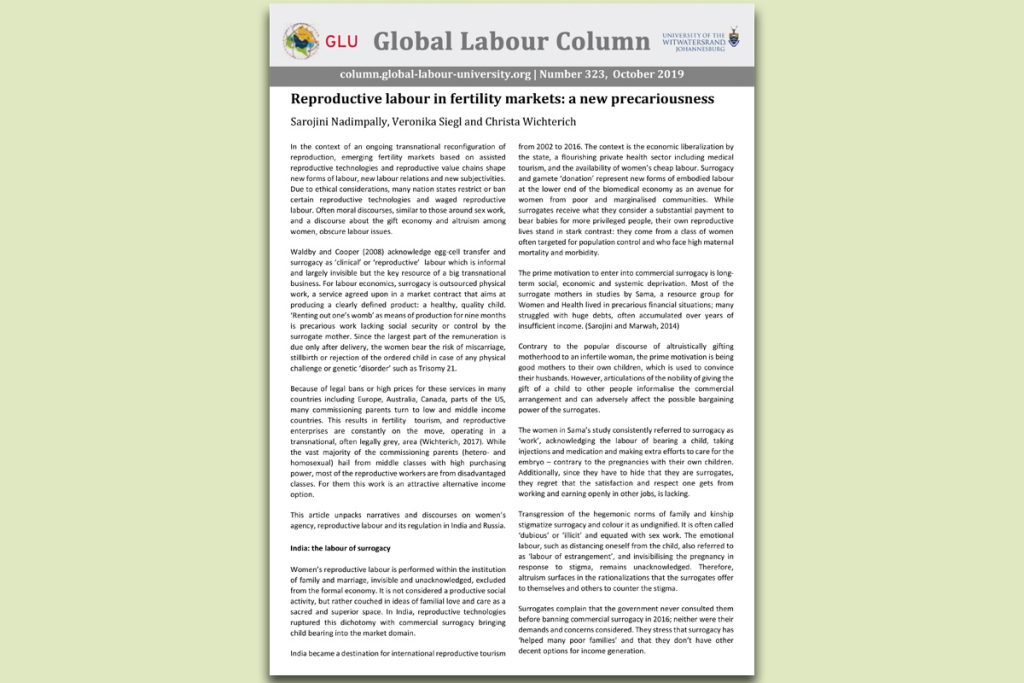
Sarojini Nadimpally, Veronika Siegl and Christa Wichterich | Global Labour Column #323, Global Labour University | October 2019
In the context of an ongoing transnational reconfiguration of reproduction, emerging fertility markets based on assisted reproductive technologies and reproductive value chains shape new forms of labour, new labour relations and new subjectivities. Due to ethical considerations, many nation states restrict or ban certain reproductive technologies and waged reproductive labour. Often moral discourses, similar to those around sex work, and a discourse about the gift economy and altruism among women, obscure labour issues …
… To confront the challenges in surrogacy, it is important to first abandon moralistic and patriarchal views of decisions made by women for the sake of survival, as well as to avoid false equivalences and binaries. Surrogate mothers demand respect for their decision and their work, not stigmatisation as sex workers or victims of exploitation.
On one hand, many feminist scholars criticise the commodification of reproductive labour, while on the other hand they acknowledge surrogacy as work. However, demands for labour rights, rights to organise or for fair-trade principles assume normalisation of reproductive work as waged labour – which is morally contested in many countries. Additionally, the question is raised whether national rules and labour regulation are sufficient or whether transnational governance of transnational markets is needed in this new labour sector.




